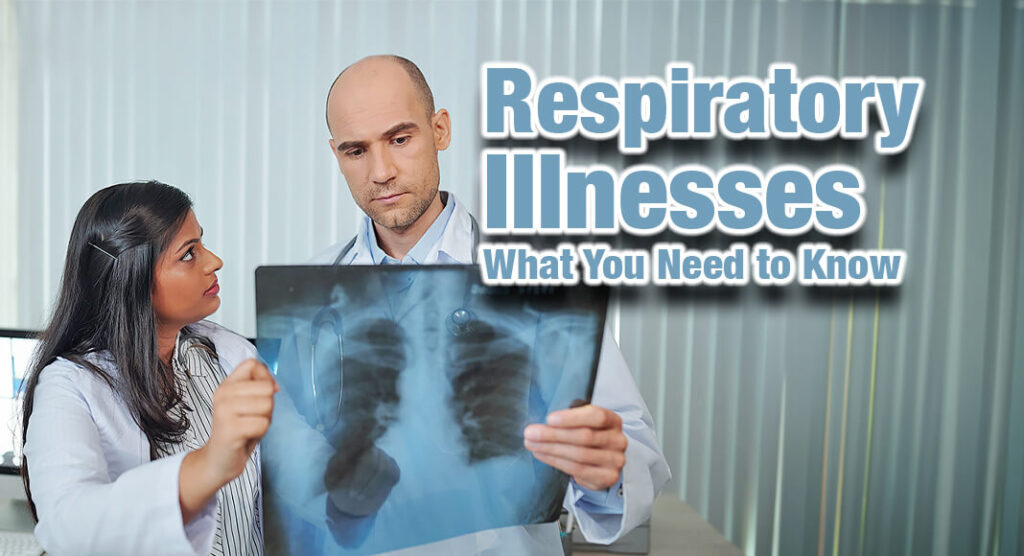
Mega Doctor News
AT A GLANCE
- Respiratory viruses are viruses that cause illnesses in the respiratory system. These illnesses share similar symptoms, risk factors, and prevention strategies.
- In the United States, we have more tools than ever before to help people protect themselves, their families, and communities from severe respiratory illnesses.
Overview
Protect Yourself This Respiratory Virus Season
You don’t want anything to get in your way. Make the most of every day and get this season’s flu, COVID-19, and RSV vaccines.
Every year, respiratory viruses such as influenza (flu), COVID-19, and respiratory syncytial virus (RSV) cause hundreds of thousands of hospitalizations and thousands of deaths during the fall and winter virus season.
Common respiratory viral illnesses
- Flu
- COVID-19
- RSV
- Adenovirus
- Rhinovirus/Enterovirus (common cold)
- Parainfluenza
- Parvovirus B19 (Fifth Disease)
Respiratory viruses may cause both upper respiratory tract symptoms (the vocal chords and above) and lower respiratory tract symptoms (below the vocal chords). Some viruses also affect the nose, throat and lungs, and can lead to serious lung infections, such as pneumonia.
Examples of respiratory virus symptoms
- Fever
- Chills
- Fatigue (tiredness)
- Cough
- Runny or stuffy nose
- Decrease in appetite
- Sore throat
- Vomiting
- New loss of taste or smell
- Headache, muscle or body aches
- Diarrhea
- Weakness
When to seek emergency care
If you have an emergency warning sign (like trouble breathing or chest pain), seek emergency medical care immediately.
Risk factors
Illnesses caused by common respiratory viruses like COVID-19, flu, and RSV can make anyone sick. However, some people have risk factors that can increase their chances of getting very sick (severe illness).
Groups of people at a higher risk for respiratory illnesses
Older adults whose immune systems tend to not work as well and are more likely to have underlying health conditions.
Young children have immune systems that are still developing and small airways.
People with weakened immune systems can have lower defenses against infections and their bodies may have a harder time building lasting protection from immunization or prior infection.
People with disabilities are more likely to have underlying medical conditions, live in congregate settings, or experience factors and conditions stemming from social determinants of health that increase their risk for poor outcomes from respiratory infections.
Pregnant and recently pregnant people because pregnancy can cause changes in the immune system, heart, and lungs that make people more likely to get very sick from respiratory viruses.
Prevention
There are actions you can take to help protect yourself and others from health risks caused by respiratory viruses.
What to do when you are sick
CDC recommends you stay home and away from others until at least 24 hours after both your symptoms are getting better overall, and you have not had a fever (and are not using fever-reducing medication). Resume normal activities and use added prevention strategies over the next five days.
Core prevention strategies
Immunizations are available for all three major fall and winter respiratory diseases – flu, COVID-19, and RSV (for groups eligible for RSV immunization).
Washing hands and improving airflow in the places where people live and work are important to lowering risk from respiratory viruses.
Effective treatments are available for those who get flu or COVID-19 and are recommended for those at higher risk for severe illness. Treatment can reduce severe illness, hospitalization, and death.
Additional prevention strategies
Everyday actions like masking and physical distancing can provide an additional layer of protection.
Tests are available that can quickly detect these respiratory viruses so patients don’t delay treatment and other actions that can protect their family, friends, and coworkers.
Treatment is a core prevention strategy to lower risk of severe illness from respiratory viruses.
Antivirals vs. antibiotics
Differences: Antiviral medicines fight against viruses, while antibiotics fight against bacterial infections.
Similiarities: Neither antiviral medications or antibiotics are sold over the counter in the United States. You can only get them if you have a prescription from a health care provider.
Widely available and effective treatments for respiratory viruses
Antiviral medications for COVID-19 and flu work best when taken as soon as possible and are recommended for those at higher risk.
COVID-19 antiviral medications cut the risk of hospitalization due to COVID-19 by over half and the risk of death by even more (75%).
Flu antiviral medicationscan lessen flu symptoms and shorten the time you are sick by about a day. Starting antiviral treatment shortly after symptoms begin can also help reduce some flu complications.










